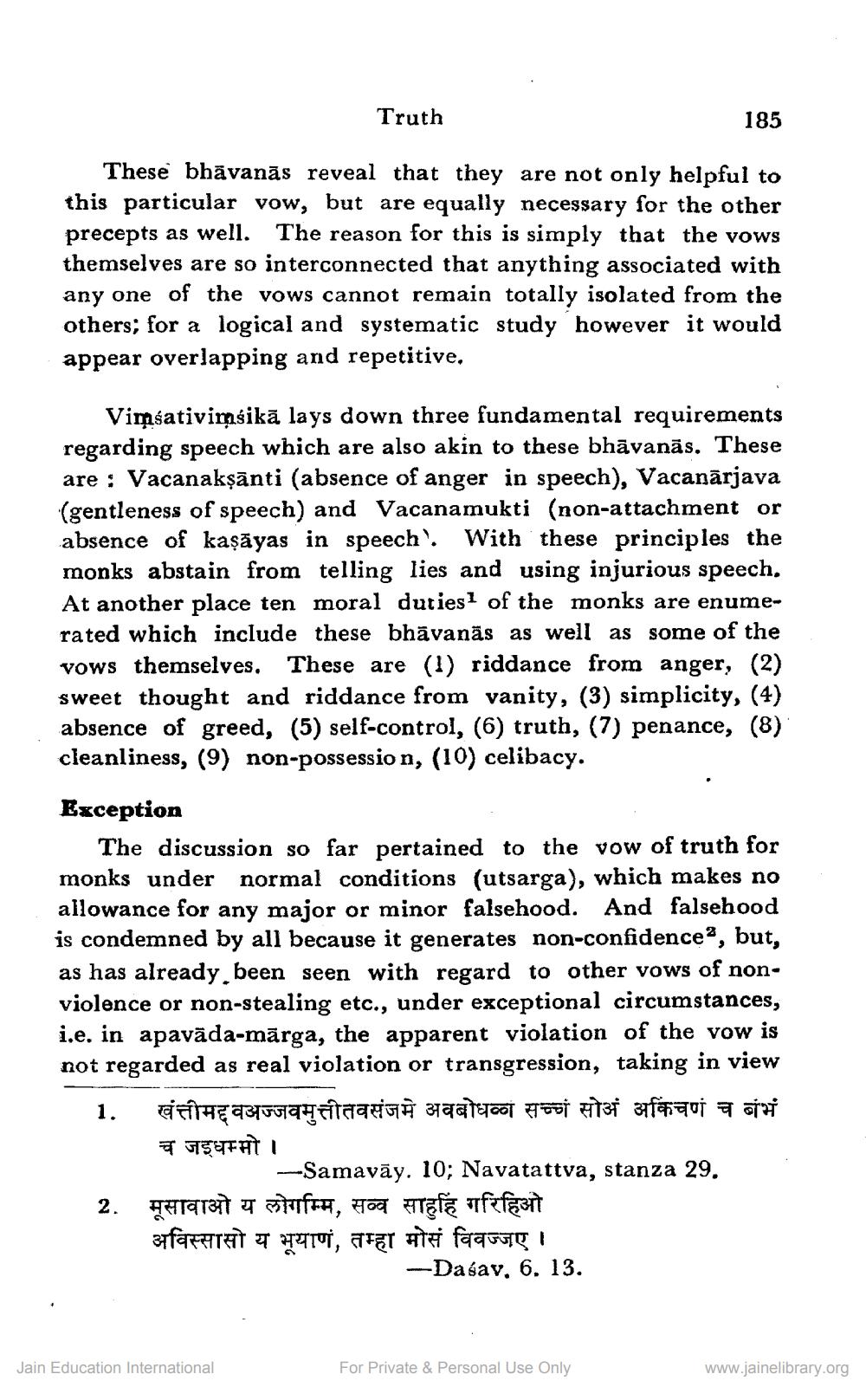________________
Truth
185
These bhāvanās reveal that they are not only helpful to this particular vow, but are equally necessary for the other precepts as well. The reason for this is simply that the vows themselves are so interconnected that anything associated with any one of the vows cannot remain totally isolated from the others; for a logical and systematic study however it would appear overlapping and repetitive.
Vimsativimsikā lays down three fundamental requirements regarding speech which are also akin to these bhāvanās. These are : Vacanakşānti (absence of anger in speech), Vacanārjava (gentleness of speech) and Vacanamukti (non-attachment or absence of kaşāyas in speech'. With these principles the monks abstain from telling lies and using injurious speech. At another place ten moral duties? of the monks are enumerated which include these bhāvanās as well as some of the vows themselves. These are (1) riddance from anger, (2) sweet thought and riddance from vanity, (3) simplicity, (4) absence of greed, (5) self-control, (6) truth, (7) penance, (8) cleanliness, (9) non-possession, (10) celibacy. Exception
The discussion so far pertained to the vow of truth for monks under normal conditions (utsarga), which makes no allowance for any major or minor falsehood. And falsehood is condemned by all because it generates non-confidence, but, as has already been seen with regard to other vows of nonviolence or non-stealing etc., under exceptional circumstances, i.e. in apavāda-mārga, the apparent violation of the vow is not regarded as real violation or transgression, taking in view ___ 1. खंत्तीमद्दवअज्जवमुत्तीतवसंजमे अवबोधळा सच्चं सोअं अकिंचणं च बभं च जइधम्मो ।
--Samavāy. 10; Navatattva, stanza 29. 2. मूसावाओ य लोगम्मि, सव्व साहहिं गरिहिओ अविस्सासो य भूयाणं, तम्हा मोसं विवज्जए ।
-Daśav, 6. 13.
Jain Education International
For Private & Personal Use Only
www.jainelibrary.org




